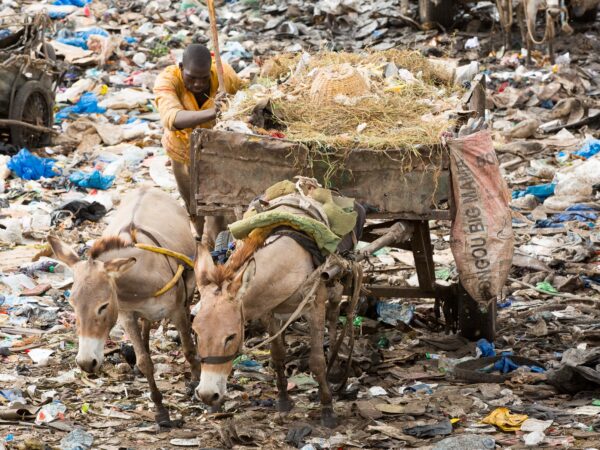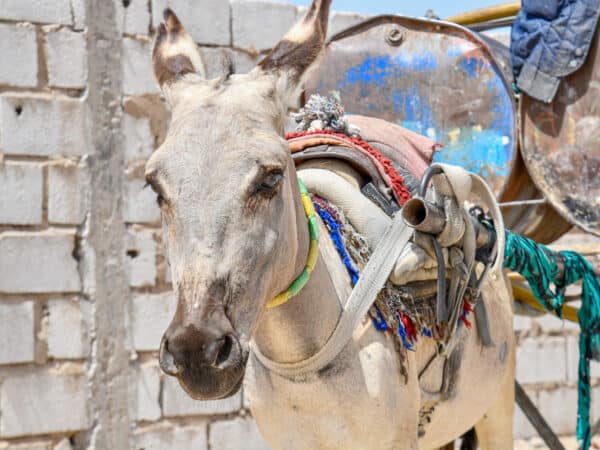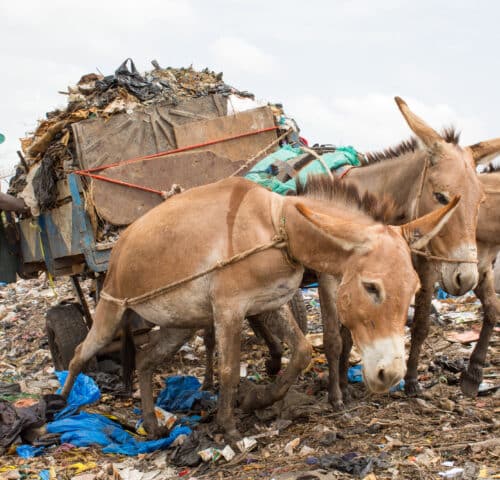
Animals are suffering because of the extreme work they do to support communities
Every day, defenceless working donkeys, horses, camels, oxen and elephants endure long hours in what must be the world’s worst and most dangerous workplaces.
In fact, more than 200 million working animals do the jobs of trucks, tractors and taxis in extreme conditions, supporting entire families and communities.
In Mali, donkeys spend 12 hours a day trudging up and down towering piles of dirty, rotting rubbish containing deadly bacteria and hazardous sharp objects. With their owners, their job is to transport heavy loads of rubbish to the dump for a meagre wage.
But working in a rubbish dump can – and does – kill donkeys in Mali. Working donkeys often collapse from starvation and dehydration. Desperately hungry, others resort to eating cardboard, rotting waste and plastic bags.
By supporting SPANA, you can help working animals facing extreme conditions, like donkeys who work in the rubbish dumps of Mali.
Will you please help treat working animals that are suffering simply because of the dangerous job they do?

Abass transports heavy water in unbearable heat
In the city of Boghé, Mauritania, Abass the donkey transports barrels of water for 12 hours a day in 40°C heat to help people who don’t have access to a piped water system. With his 17-year-old owner Cheikh, Abass travels around the city doing this backbreaking, hot and heavy work at speed, with no breaks, because their community relies on them.
When Cheikh took Abass to our veterinary centre in Boghé, his precious donkey was suffering badly. Though Abass transports water, he didn’t get enough to drink himself. Due to the unbearable heat he found it almost impossible to move, let alone pull his heavy cart of water barrels that could topple off at any moment.
SPANA vets diagnosed Abass with malnutrition and dehydration. They advised Cheikh to let Abass rest, give him plenty of water, and explained how to improve his nutrition to keep him healthy. They also gave him vitamins to help him recover.
By donating today, you can help make sure other working animals like Abass receive essential veterinary care, easing their pain and suffering. Thank you so much for your support.

Working animals lead exceptionally hard lives and, in these difficult times, there has never been more need for SPANA’s intervention. I would encourage everyone to support SPANA and help the charity to continue its vital work.


